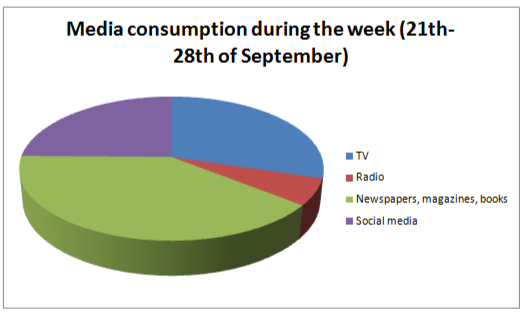I saw on the tube station an ad about the Macmillan charity- World’s biggest coffee morning, about a month ago, and I felt deep in my heart that I had to get involved immediately. What I had to do was to host my own coffee morning on a place of my choice. I decided to welcome people at the entrance of the nearby park, with the hope that the British weather would smile at me. It did.

What I noticed was the fear of people when I approached them trying to explain what the charity is all about. Some of them just passed by, others were polite to say that ”they are in a rush”. I find their behaviour completely understandable – I would do the same in the role of a passenger.
The sad thought that occupies my mind is that most of us have hard time trusting people on the street that collect money for charities. We cannot recognize the ‘real ones’ between the ‘liars’ anymore- they both look the same- smart-dressed and good-looking.
But there were people who were happy to give some change for the charity and get a cup of coffee/tea and/or a cupcake. I even met people concerned about not bringing any cash with them, so they asked me if they could donate in another way.
After all, it is not about the money raised, but for the goodness that you spread around and gets back to you. When I put my coffee ‘morning’ (it was actually an afternoon) to an end and got home, someone ringed on my door. What my eyes saw was an adorable old couple that received my invitation by post, who lives near me. These two people told me they wanted to donate money to the Macmillan charity as they did the previous years, but they did not find me in the park, so they decided to come to my house, as I left my address on the invitation for contact. My heart melted when I heard their words. I immediately took my guests home and we drank tea together. I was really impressed by their courtesy and vast knowledge on different kinds of topics. They like to travel and have seen a lot- from Istanbul to China, from Morocco to Singapore and Russia.
And I have an invitation for tea at their home this Monday. I never expected such a good ending to my coffee morning.




